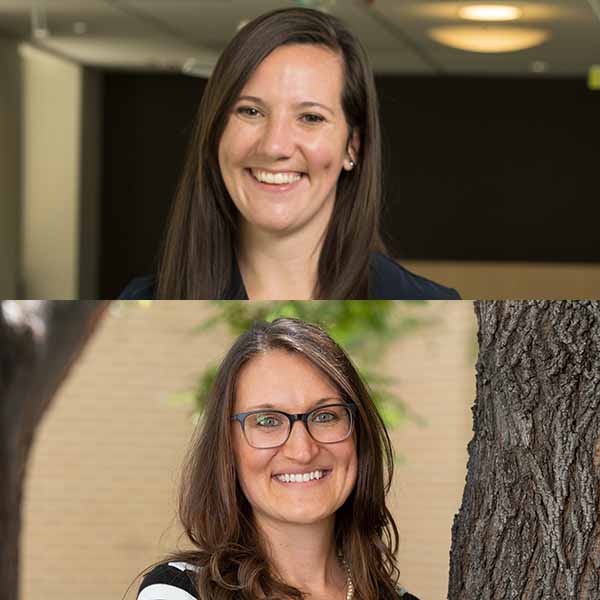
In recent years, the Big Four accounting firms have been outspoken about the need to increase diversity in their profession. A new analysis of the firms’ charitable giving paints a different picture, finding that those firms’ donations to accounting programs at historically black colleges and universities (HBCUs) doesn’t match that rhetoric.
In “Firms’ Investments in Historically Black Colleges and Universities,” the accounting department’s Elizabeth Cowle and Michelle Draeger and their coauthor examine tax filings from charitable foundations aligned with the major accounting firms and found the overall percentage of allocations to HBCUs has remained stagnant between 2009 and 2020. The paper, which is published in Accounting Horizons, also found the majority of the foundations’ contributions went to a handful of high-prestige programs, effectively neglecting most of the 23% of Black accounting graduates that enter the workforce from HBCUs.
“If you look at these numbers, it’s pretty sad that about 75% of HBCUs are not getting any money at all even when they have a significant number of accounting graduates,” Cowle said. “If you’re trying to increase diversity, it seems like one way to do so could be to target this largely untapped talent pool.”

“Firms’ Investments in Historically Black Colleges and Universities”
Elizabeth Cowle, Michelle Draeger, Keica Smith1
Accounting Horizons
1 North Carolina A&T State University
Tracking decades-long patterns of giving
The bulk of charitable giving done by Big Four firms – Deloitte, KPMG, Ernst & Young and PwC – is done through nonprofit foundations aligned with each firm. Researchers turned to information disclosed by three foundations each year to the IRS since 2009 to track contributions to HBCUs. Giving by PwC’s foundation to universities ended in 2010, and researchers tracked its contributions to HBCU-related organizations instead.
They found that predominantly white institutions (PWIs) received more than 83% of the foundations’ funding over the 11-year period surveyed. During the same time frame, HBCUs received 1.2% of overall giving, and organizations with ties to those schools received less than 1% of the Big Four’s charitable funding. This equated to $2.92 per student each year at predominantly white institutions compared to $0.33 per student per year at HBCUs.
Additional analysis revealed other disparities. Two institutions with the most high-profile programs, Howard University and North Carolina AT&T State University, claimed 49% of the Big Four foundations’ overall giving to HBCUs. Of the pool of 85 HBCUs the researchers looked at, 75% did not receive any donations from the Big Four foundations.
Firms have touted an increase in the number of dollars directed toward diversity efforts, but the research finds that increases in monetary contributions to HBCUs aren’t significant when compared to giving to predominantly white institutions.
“What is kind of alarming is that the overall allocation percentage has not changed,” Cowle said. “Yes, firms are giving more to HBCUs, but they are also giving more everywhere else. They’re not actually increasing the proportion of overall dollars given to HBCUs.”
The power of contributions
Draeger and Cowle don’t stop at quantifying the accounting profession’s support of accounting programs at HCBUs. They see their findings as an opportunity to harness inclusion and diversity efforts to strengthen the profession. Based on the number of students graduating with an accounting degree, interest in the field has declined each year since 2016. In 2022, 7.4% fewer students graduated with an accounting degree than in 2021. Increasing investment into HCBUs would not only strengthen the profession through improved diversity but could help faculty at those institutions recruit into the profession.
“Accounting faculty are the main sellers of the profession,” Draeger said. “If you don’t have those cheerleaders promoting the profession or making students aware that accounting careers are even a possibility, HBCUs are also losing out in that regard.”
The cost of pursuing an accounting career is one of the many factors contributing to the decline in enrollments, the researchers said. Beyond rising tuition, many firms require students to invest an additional year on campus after completing their bachelor’s degree, then study and sit for the CPA exam. Additional scholarship funding at HCBUs could improve access to the programs that prepare students for a career in a large firm.
“If a student is looking at an accounting degree and sees the cost of an accounting degree as a barrier to entry, perhaps having more scholarships and faculty endowments available at schools that are historically underfunded could also help create more of a demand amongst the student body,” Cowle said. “They may say, ‘I actually will have this support and resources I need, should I choose to pursue this degree.’”
Ultimately, the researchers hope the analysis of giving inspires the Big Four and other large accounting firms to begin funding HBCUs at higher levels.
“These firms make billions of dollars in revenue every year, and while the charitable giving to HBCUs is commendable, it seems like much more can be done in terms of increasing investments in these schools where large talent pipelines are seemingly left behind,” Cowle said.
The College of Business at Colorado State University is focused on using business to create a better world.
As an AACSB-accredited business school, the College is among the top five percent of business colleges worldwide, providing programs and career support services to more than 3,000 undergraduate and 1,200 graduate students. Faculty help students across our top-ranked on-campus and online programs develop the knowledge, skills and values to navigate a rapidly evolving business world and address global challenges with sustainable business solutions. Our students are known for their creativity, work ethic and resilience—resulting in an undergraduate job offer and placement rate of over 90% within 90 days of graduation.
The College’s highly ranked programs include its Online MBA, which has been ranked the No. 1 program in Colorado by U.S. News and World Report since 2018 and achieved No. 11 for employability worldwide from QS Quacquarelli Symonds. The College’s Impact MBA is also ranked by Corporate Knights as the No. 7 “Better World MBA” worldwide.